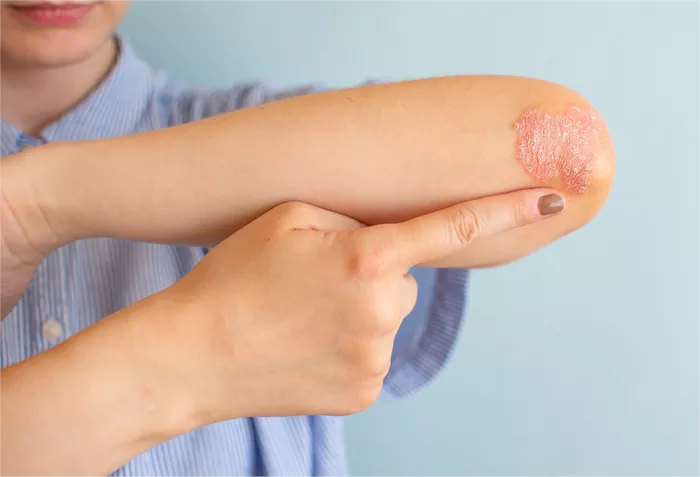Bimzelx (bimekizumab) has shown sustained improvements in patients with hidradenitis suppurativa (HS) over a two-year period, according to findings presented at the European Academy of Dermatology and Venereology Congress (EADV 2024). This data comes from two phase 3 studies and a subsequent extension trial.
Fiona du Monceau, MBA, executive vice president and head of patient evidence at UCB, emphasized the importance of long-term data for both healthcare providers and patients when making treatment decisions. “We are proud to present, for the first time, the bimekizumab 2-year results at EADV 2024,” she stated in a company release.
The studies, BE HEARD I and BE HEARD II, assessed the efficacy and safety of Bimzelx over 48 weeks. A total of 1,014 patients aged 18 and older with moderate to severe HS were randomly assigned to various treatment regimens, including subcutaneous doses of Bimzelx at 320 mg either twice weekly or every four weeks, as well as a placebo group.
Results indicated that of the 556 patients who completed the treatment through week 48, 79.9% achieved a 50% improvement in Hidradenitis Suppurativa Clinical Response (HiSCR50), while 64% reached HiSCR75, 42.3% achieved HiSCR90, and 30.2% attained HiSCR100.
Following the initial trials, these patients were enrolled in the long-term extension trial, BE HEARD EXT, which continued for up to 96 weeks. Outcomes were also promising in this phase, with 85.4%, 77.1%, 57.6%, and 44.2% of the 446 patients treated with Bimzelx achieving HiSCR50, HiSCR75, HiSCR90, and HiSCR100, respectively.
Moreover, patients who showed improvement during the 48-week trials maintained their progress at the 96-week mark, with average severity scores showing significant reductions.
By week 48, the average number of draining tunnels per patient had decreased by 57.5% from baseline, continuing to decline to 73.7% by week 96. Notably, by the end of the two-year period, approximately one-third of patients reported minimal or no impact of HS on their quality of life.
In terms of safety, Bimzelx was found to be well-tolerated. Among the 995 patients who received at least one dose, 917 experienced treatment-emergent adverse events, with 122 classified as serious. The most frequently reported adverse events included hidradenitis (20.5 events per 100 person-years), coronavirus infections (15.3), and oral candidiasis (10.5).
These findings underscore Bimzelx’s potential as a long-term treatment option for individuals suffering from hidradenitis suppurativa, highlighting its effectiveness and safety profile.
Related topics:


























